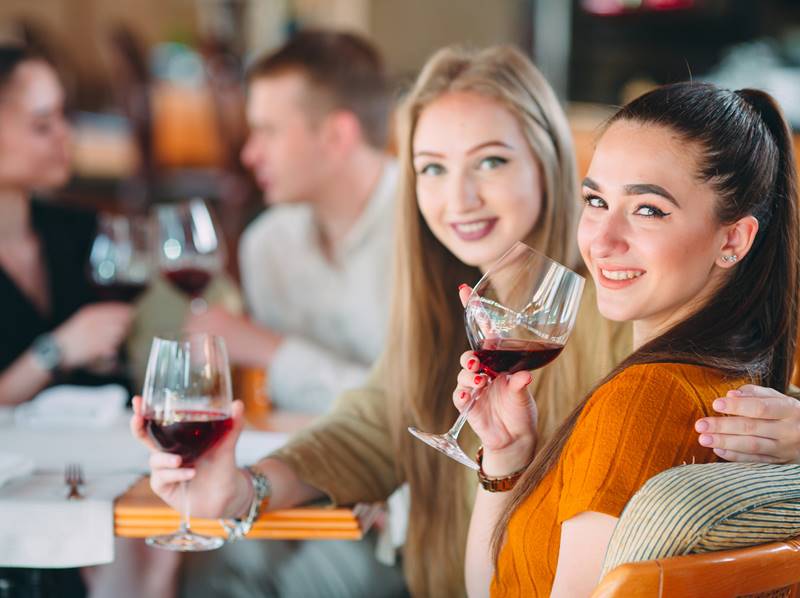Wine Industry Faces Gen Z's Sober Revolution
Gen Z's Health-Conscious Habits Driving Alcohol Consumption Down
2024-08-22

The drinking habits of Generation Z are continuing to evolve in ways that are causing ripples across the global beverage industry. New data from CGA by NIQ highlights a growing trend among young adults in the UK to reduce or completely avoid alcohol consumption. This shift is particularly significant among those aged 18 to 24, where nearly a third (30%) of this demographic report drinking less than they did a year ago, and 13% have stopped consuming alcohol altogether.
For an industry long anchored in traditions and rituals surrounding alcohol, these numbers present a stark challenge. The wine industry, in particular, has been keeping a close eye on these trends, concerned about the long-term implications for a market that has historically relied on the allure of wine as a symbol of sophistication and culture. The shift away from alcohol isn't just about a change in preference from one type of drink to another—like swapping wine for hard seltzers or ready-to-drink cocktails (RTDs). The latest data suggests a broader cultural movement towards moderation, or in some cases, abstinence.
Health and Lifestyle: The Driving Forces Behind the Shift
One of the most telling aspects of this trend is the reason behind it. Health consciousness is at the forefront, with 74% of the young adults surveyed stating that they aim to lead a healthier lifestyle. This focus on well-being reflects broader societal trends, where wellness, fitness, and mental health are increasingly prioritized over indulgence. The pursuit of a balanced, healthier life is reshaping how young people approach socializing and consumption, leading them to question the role of alcohol in their lives.
For many in Generation Z, the image of the traditional pub crawl or boozy night out is being replaced by evenings that include a mix of both alcoholic and non-alcoholic beverages, a practice referred to as "zebra striping." This approach allows them to enjoy social settings without compromising their health goals. As such, the trend represents more than just a decrease in alcohol consumption—it's a shift in social norms.
Implications for the Beverage and Hospitality Industries
This generational shift away from alcohol does not necessarily spell disaster for the hospitality industry. On the contrary, the data shows that 60% of those in the LDA to 24-year-old range still go out to on-premise venues weekly. The key difference is in what they are ordering. The preference for soft drinks has grown, though not dramatically, with young adults being 6% more likely than the average consumer to order a non-alcoholic beverage.
This evolution presents both a challenge and an opportunity for beverage suppliers and hospitality providers. As Violetta Njunina, CGA's client director, pointed out, "As moderation becomes a key trend, particularly among younger generations, the ability to offer appealing, high-quality, and health-conscious soft drinks is crucial for success." For brands that have long dominated the alcohol market, adapting to this new landscape will require innovation and agility.
The demand for sophisticated, non-alcoholic options is likely to continue rising. As a result, brands that can create products that appeal to health-conscious consumers—while still offering the sensory experience and social cachet of alcoholic beverages—stand to gain. The soft drink market may not have seen a significant spike yet, but as moderation becomes more entrenched, the potential for growth in this area is considerable.
The generational shift in drinking habits is not merely a passing trend but an indication of deeper cultural changes. Generation Z's approach to alcohol reflects their broader values: a commitment to health, a desire for authenticity, and an inclination toward experiences that do not rely on intoxication. For an industry that has often equated alcohol with enjoyment, relaxation, and celebration, these changes represent both a challenge and an opportunity.
The brands and businesses that will thrive in this new era are those that understand and embrace these changes, offering products and experiences that align with the values of a generation increasingly defined by its conscious choices. Whether through developing new products or reimagining marketing strategies, the future of the beverage industry will be shaped by how well it can adapt to the evolving preferences of Generation Z.
Founded in 2007, Vinetur® is a registered trademark of VGSC S.L. with a long history in the wine industry.
VGSC, S.L. with VAT number B70255591 is a spanish company legally registered in the Commercial Register of the city of Santiago de Compostela, with registration number: Bulletin 181, Reference 356049 in Volume 13, Page 107, Section 6, Sheet 45028, Entry 2.
Email: [email protected]
Headquarters and offices located in Vilagarcia de Arousa, Spain.